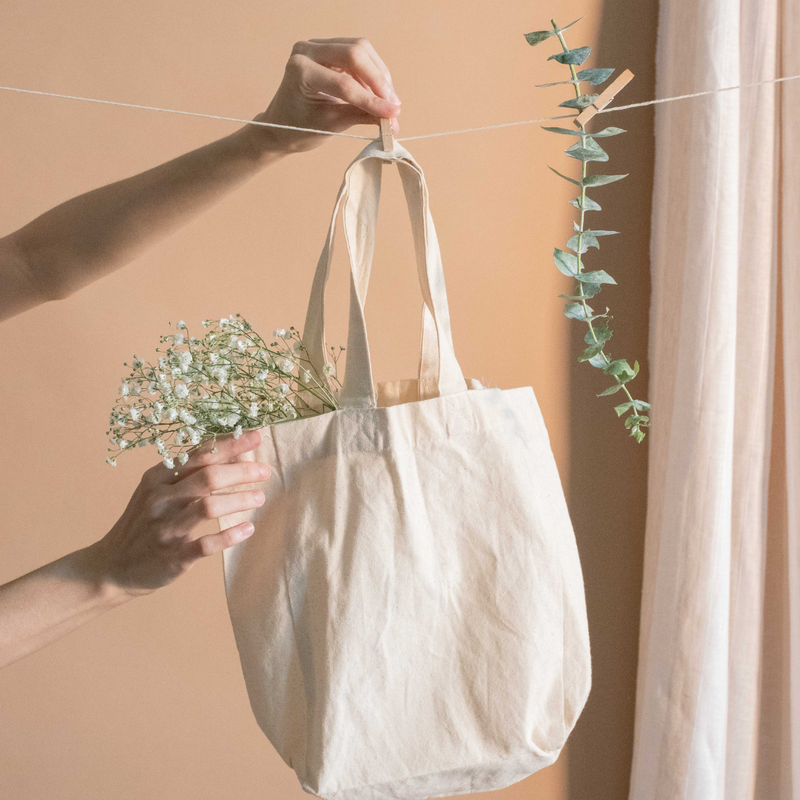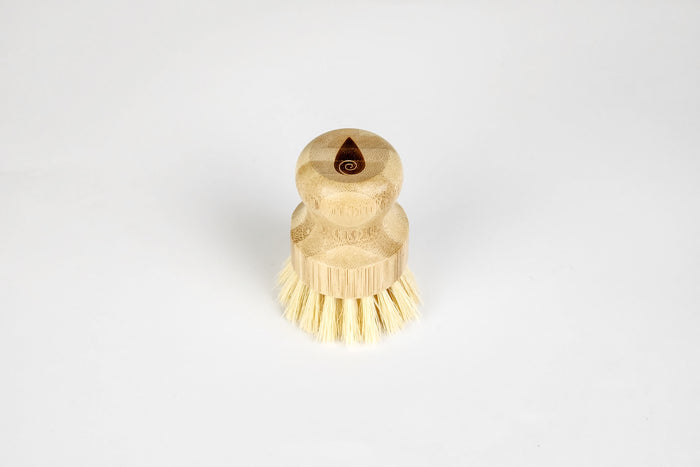
We've been hearing so much about climate change recently, and the facts don't look good. The evidence shows that, thanks to human activity, global temperatures are rising at a level which is no longer sustainable for the environment to survive. A landmark report by UN scientists has been described as a "code red for humanity", as it details grim realities such as rising sea levels, and more intense and frequent heatwaves.
Shia Su, also known as the Wasteland Rebel, advises not to beat yourself up if you forget your reusable bag or cup - it will likely just add to your eco-anxiety. She shares that she never had the notion of being perfect and going completely zero-waste, but one day she decided to take a job to her local coffee shop instead of using a takeaway cup, and she started making more eco-friendly choices.
Try to turn good intentions into good habits. Shai, Eco Rituals founder advises doing whatever you can, and after awhile, it will become a habit, just like grabbing your phone, waller and keys when leaving the house. Eventually, you can add grabbing your reusable bottle and food container to that list, and it will be second nature.
The third tip shared by many eco-friendly activists is about adopting a minimal lifestyle and cutting out unnecessary purchases. Shai emphasises that living sustainably is about consuming less in general and only buying new clothing when it's necessary to replace something else or by purchasing away from fast fashion companies. Look to your grandparents for inspiration, as they can teach us a lot about avoiding waste and being resourceful.
In addition to these tips, other eco-bloggers and Instagrammers offer advice on various areas of life. For fashion, Kavita Parel owner of Xaura The Label, who curates unique handmade garments and blogs about ethical fashion. When you buy less and embrace what you already own, opting for eco-friendly materials, and moving away from fast fashion.
For food, Immy Lucas, a blogger and Youtube known as Sustainably Vegan, suggests considering a more plant-based diet by reducing meat consumption to a few days a week, eating locally and seasonally as much as possible, and being mindful of packaging choices by opting for unpackaged fruits and vegetables or choosing cans and cardboard when shopping at the supermarket.
Making these small changes in our daily lives can add up to make a meaningful impact on reducing our environmental footprint and contributing to a more sustainable future for our planet.
Bamboo Dish Brush
- Regular
- $8.95
- Sale
- $8.95
- Regular
-
- Unit Price
- per
Bamboo Pot Scrubber
- Regular
- $7.95
- Sale
- $7.95
- Regular
-
- Unit Price
- per
Replacement Bamboo Dish Brush Head
- Regular
- $4.95
- Sale
- $4.95
- Regular
-
- Unit Price
- per
Soft Plastics Compactor NZ- Wholly Shrink
- Regular
- $39.99
- Sale
- $39.99
- Regular
-
- Unit Price
- per








